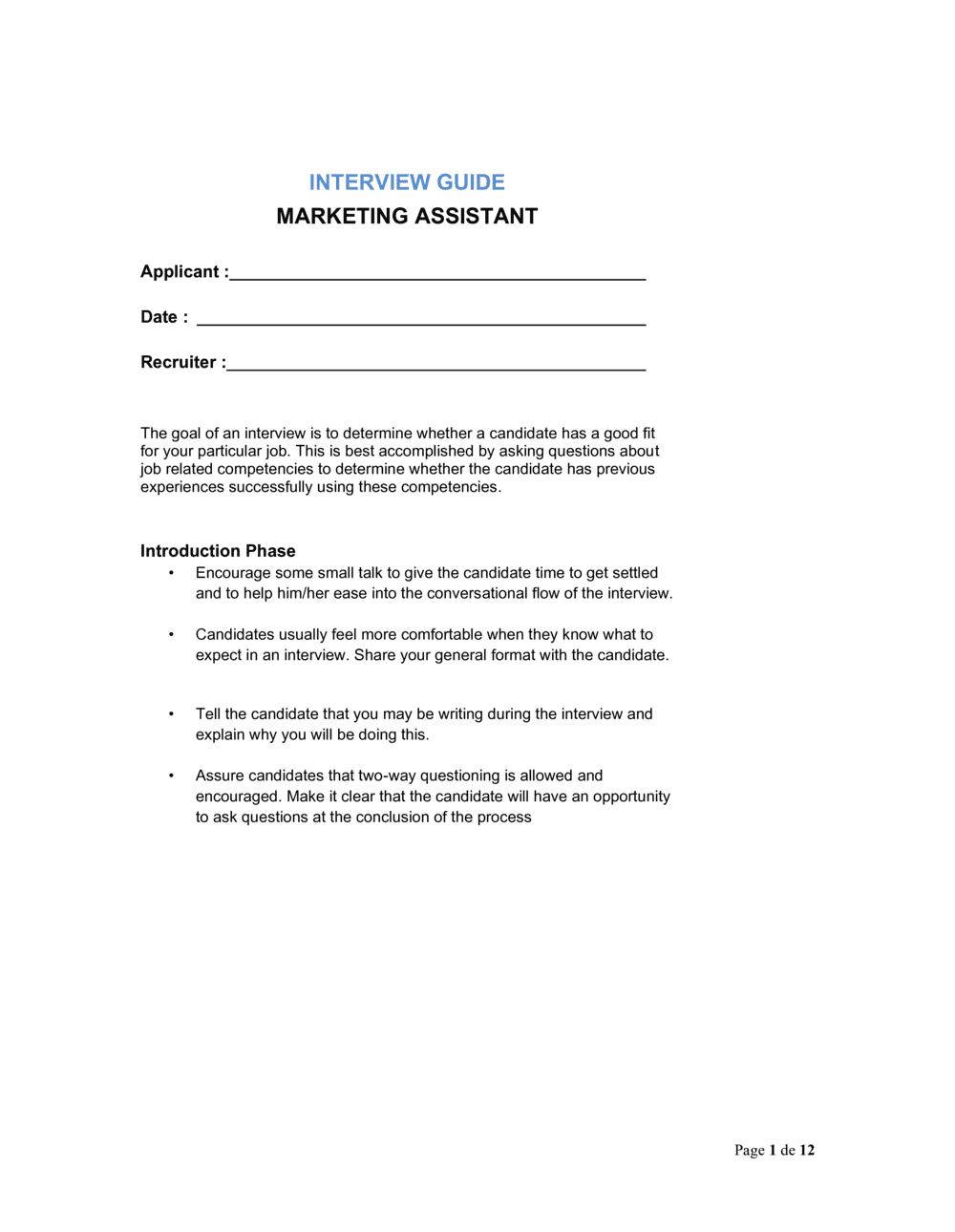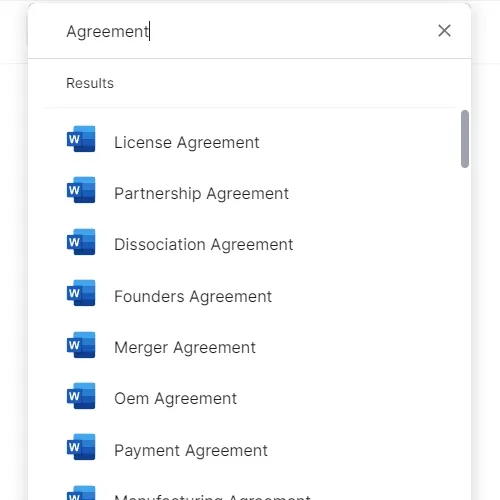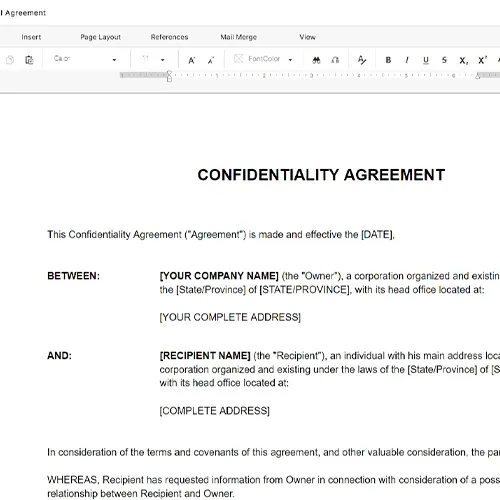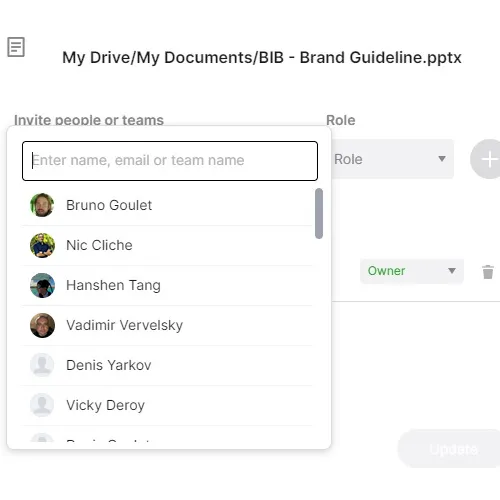Interview Guide Marketing Assistant

Sample of Document Content
This interview guide marketing assistant template has 12 pages and is a MS Word file type listed under our human resources documents.
Interview guide marketing assistant
INTERVIEW GUIDE MARKETING ASSISTANT Applicant : Date : Recruiter : The goal of an interview is to determine whether a candidate has a good fit for your particular job. This is best accomplished by asking questions about job related competencies to determine whether the candidate has previous experiences successfully using these competencies. Introduction Phase Encourage some small talk to give the candidate time to get settled and to help him/her ease into the conversational flow of the interview. Candidates usually feel more comfortable when they know what to expect in an interview. Share your general format with the candidate. Tell the candidate that you may be writing during the interview and explain why you will be doing this. Assure candidates that two-way questioning is allowed and encouraged. Make it clear that the candidate will have an opportunity to ask questions at the conclusion of the process Interview Phase Have your competency based questions ready for scoring. We recommend a 1 to 5 scoring grid; a score of 1 would mean the candidate has demonstrated no experience using the competency and a score of 5 indicating the candidate has a deep understanding of the competency and has used it successfully in the past with good results. Probing: After asking a planned question, you may want to probe for more information to support a candidate's response. Probes are usually unplanned; you use them when you want the candidate to clarify or expand upon a point or when you want more insight into his/her thoughts, feelings, and behaviours.("Please expand upon that." "Describe how you .") Clarifying Inconsistencies: When a candidate appears to be caught in a contradiction, it may be appropriate to bring the conflicting information to the surface for clarification. ("You mentioned earlier that you were involved in developing a distance education course. You are now indicating that you have limited experience with distance education and need to learn more about it. Please clarify your experience with distance education.") Paraphrasing: When in doubt that you have fully understood a candidate's response, restate what you think you heard in your own words and ask the candidate for feedback. ("You are basically stating that there are several ways to handle this situation depending upon the way in which the client presents the problem. Is that what you meant?") Silence or Pause: Silences or pauses are an effective technique for encouraging the candidate to do the talking. When there is a silence or pause, don't jump in with another question; allow the candidate time to reflect and form a response. Look expectantly at him or her while you wait. Repeating: When the candidate appears to be avoiding a question, come back to it again. While the candidate may have reasons for trying to evade it, she/he may simply have gotten sidetracked or may not fully understand what you mean. Integrity Integrity is something all employees are expected to demonstrate; however, integrity becomes more critical when the job includes temptations such as handling financial transactions, handling sensitive personal or health records, or working with valuable property and materials. People with high integrity follow rules and regulations associated with the job and are uncomfortable when they are violated. Before you ask this question, best practice suggests that you know beforehand the kind of integrity associated with both satisfactory and unsatisfactory job performance. How do you feel about rules that were created for no obvious reason ? Can you give me some examples ? What were the rules ? What did you do? What was the result ? 1 2 3 4 5 Minimal ability/NA Average ability Exceptional ability Comments Attention to detail Attention to detail includes the employee's ability to identify and manage important details associated with doing a good job. This includes things such as checking and rechecking work, setting up monitoring systems, noticing missing details, accurately completing forms, following directions, and planning projects to the final detail. Before you ask this question, best practice suggests that you know beforehand the kind of details that are associated with both satisfactory and unsatisfactory job performance. Give me an example of a time when you had to keep track of many small details. What was the situation ? What did you do? What was the result ? 1 2 3 4 5 Minimal ability/NA Average ability Exceptional ability Comments Dependability Dependability involves the employee being reliable, on time, responsible, dependable, and consistently fulfilling commitments. On the job the employees must do what they say and say what they do. A dependable employee can be trusted to give straight answers, follow through, and complete assignments on time and within budget. Their behaviour is predictable and seldom holds any surprises or unexpected reactions. They can be counted on to be honest and upfront with co-workers regardless of the situation. Before you ask this question, best practice suggests that you know beforehand the kind of dependability associated with both satisfactory and unsatisfactory job performance. How do you balance socializing with co-workers with accomplishing the job ? Can you give me some examples? What were the results ? 1 2 3 4 5 Minimal ability/NA Average ability Exceptional ability Comments Cooperation Cooperation requires being pleasant with others on the job and displaying a good-natured, cooperative work attitude. This trait differs from concern for others in that it not only includes the willingness to empathize, but includes volunteering to actively share their work load or help resolve their problems. Specific employee activities include listening to what another person is saying, empathizing with their situation, asking questions to clarify issues, explaining how the problem affects them both, and jointly developing a plan of action. Before you ask this question, best practice suggests that you know beforehand the level of cooperation associated with both satisfactory and unsatisfactory job performance. Tell me about a few times when you helped another team member without being asked. What was the situation ? What did you do to help out ? What was the outcome ? 1 2 3 4 5 Minimal ability/NA Average ability Exceptional ability Comments
Reviewed on

Sample of Document Content
This interview guide marketing assistant template has 12 pages and is a MS Word file type listed under our human resources documents.
Sample of our interview guide marketing assistant template:
INTERVIEW GUIDE MARKETING ASSISTANT Applicant : Date : Recruiter : The goal of an interview is to determine whether a candidate has a good fit for your particular job. This is best accomplished by asking questions about job related competencies to determine whether the candidate has previous experiences successfully using these competencies. Introduction Phase Encourage some small talk to give the candidate time to get settled and to help him/her ease into the conversational flow of the interview. Candidates usually feel more comfortable when they know what to expect in an interview. Share your general format with the candidate. Tell the candidate that you may be writing during the interview and explain why you will be doing this. Assure candidates that two-way questioning is allowed and encouraged. Make it clear that the candidate will have an opportunity to ask questions at the conclusion of the process Interview Phase Have your competency based questions ready for scoring. We recommend a 1 to 5 scoring grid; a score of 1 would mean the candidate has demonstrated no experience using the competency and a score of 5 indicating the candidate has a deep understanding of the competency and has used it successfully in the past with good results. Probing: After asking a planned question, you may want to probe for more information to support a candidate's response. Probes are usually unplanned; you use them when you want the candidate to clarify or expand upon a point or when you want more insight into his/her thoughts, feelings, and behaviours.("Please expand upon that." "Describe how you .") Clarifying Inconsistencies: When a candidate appears to be caught in a contradiction, it may be appropriate to bring the conflicting information to the surface for clarification. ("You mentioned earlier that you were involved in developing a distance education course. You are now indicating that you have limited experience with distance education and need to learn more about it. Please clarify your experience with distance education.") Paraphrasing: When in doubt that you have fully understood a candidate's response, restate what you think you heard in your own words and ask the candidate for feedback. ("You are basically stating that there are several ways to handle this situation depending upon the way in which the client presents the problem. Is that what you meant?") Silence or Pause: Silences or pauses are an effective technique for encouraging the candidate to do the talking. When there is a silence or pause, don't jump in with another question; allow the candidate time to reflect and form a response. Look expectantly at him or her while you wait. Repeating: When the candidate appears to be avoiding a question, come back to it again. While the candidate may have reasons for trying to evade it, she/he may simply have gotten sidetracked or may not fully understand what you mean. Integrity Integrity is something all employees are expected to demonstrate; however, integrity becomes more critical when the job includes temptations such as handling financial transactions, handling sensitive personal or health records, or working with valuable property and materials. People with high integrity follow rules and regulations associated with the job and are uncomfortable when they are violated. Before you ask this question, best practice suggests that you know beforehand the kind of integrity associated with both satisfactory and unsatisfactory job performance. How do you feel about rules that were created for no obvious reason ? Can you give me some examples ? What were the rules ? What did you do? What was the result ? 1 2 3 4 5 Minimal ability/NA Average ability Exceptional ability Comments Attention to detail Attention to detail includes the employee's ability to identify and manage important details associated with doing a good job. This includes things such as checking and rechecking work, setting up monitoring systems, noticing missing details, accurately completing forms, following directions, and planning projects to the final detail. Before you ask this question, best practice suggests that you know beforehand the kind of details that are associated with both satisfactory and unsatisfactory job performance. Give me an example of a time when you had to keep track of many small details. What was the situation ? What did you do? What was the result ? 1 2 3 4 5 Minimal ability/NA Average ability Exceptional ability Comments Dependability Dependability involves the employee being reliable, on time, responsible, dependable, and consistently fulfilling commitments. On the job the employees must do what they say and say what they do. A dependable employee can be trusted to give straight answers, follow through, and complete assignments on time and within budget. Their behaviour is predictable and seldom holds any surprises or unexpected reactions. They can be counted on to be honest and upfront with co-workers regardless of the situation. Before you ask this question, best practice suggests that you know beforehand the kind of dependability associated with both satisfactory and unsatisfactory job performance. How do you balance socializing with co-workers with accomplishing the job ? Can you give me some examples? What were the results ? 1 2 3 4 5 Minimal ability/NA Average ability Exceptional ability Comments Cooperation Cooperation requires being pleasant with others on the job and displaying a good-natured, cooperative work attitude. This trait differs from concern for others in that it not only includes the willingness to empathize, but includes volunteering to actively share their work load or help resolve their problems. Specific employee activities include listening to what another person is saying, empathizing with their situation, asking questions to clarify issues, explaining how the problem affects them both, and jointly developing a plan of action. Before you ask this question, best practice suggests that you know beforehand the level of cooperation associated with both satisfactory and unsatisfactory job performance. Tell me about a few times when you helped another team member without being asked. What was the situation ? What did you do to help out ? What was the outcome ? 1 2 3 4 5 Minimal ability/NA Average ability Exceptional ability Comments
Easily Create Any Business Document You Need in Minutes.

Download or open template
Access over 3,000+ business and legal templates for any business task, project or initiative.

Edit and fill in the blanks
Customize your ready-made business document template and save it in the cloud.

Save, Share, Export, or Sign
Share your files and folders with your team. Create a space of seamless collaboration.


